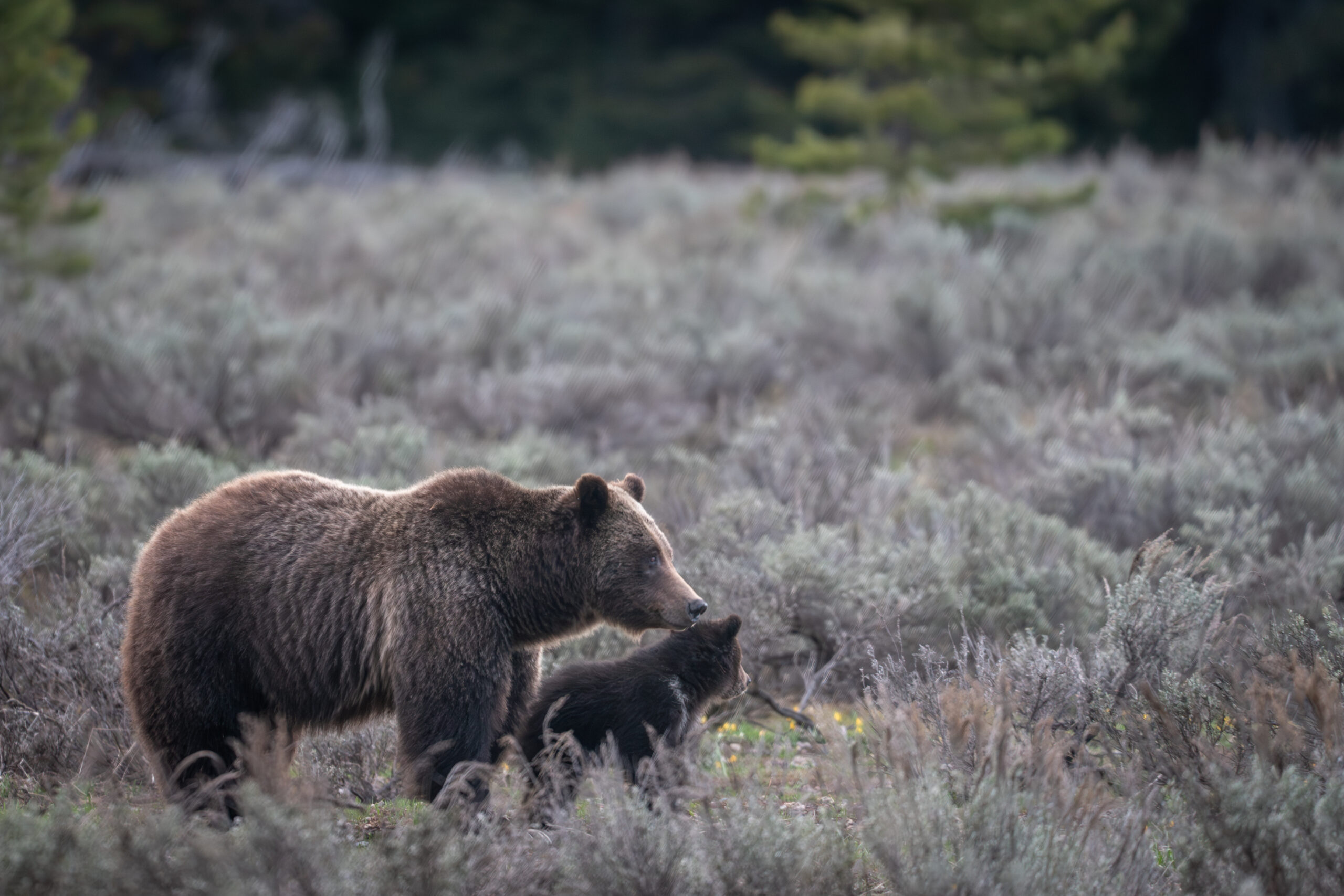The Trump Administration is rushing to gut the Endangered Species Act with a short comment period right before the holidays. Here is how you can fight back.

The Trump Administration Is Rushing to Gut the Endangered Species Act — Here’s How to Fight Back
4 Separate Attacks on the ESA.
30 Days to Respond.
Your Voice Matters More Than Ever.
The Trump Administration just launched a sweeping attempt to weaken the Endangered Species Act, the very law that often stands between imperiled wildlife and extinction. Four proposed rule changes would reopen the door to political and industry influence over decisions that are supposed to be driven by science and the public interest.
If enacted, these rules would:
- Weaken protections for newly listed species by eliminating automatic safeguards and forcing case-by-case political fights over whether a species deserves protection.
- Narrow the definition of critical habitat, excluding areas species need to recover as climate change accelerates.
- Allow economic and corporate impacts to outweigh scientific evidence in listing decisions.
- Limit the scope of federal review so agencies can more easily greenlight harmful projects, from logging to drilling, even when they place wildlife in harm’s way.
The Endangered Species Act is one of the strongest environmental laws we have—but it only works when the federal government enforces its standards. These changes don’t just threaten species on the brink; they undermine the democratic process itself.
This isn’t happening in a vacuum. State wildlife governance is already heavily shaped by industry power, and federal protections are often the only meaningful check left for species on the edge of extinction. These proposed rollbacks would further shift decision-making away from science, away from democratic accountability, and away from the basic values that the public overwhelmingly supports.
The United States is in the middle of a biodiversity crisis. From frogs to monarch butterflies, wolverines to manatees and owls to salmon, our wild neighbors can’t survive if we let political pressure override what the science tells us clearly: species on the brink and the ecosystems they rely on require bold, proactive protection.
A 30-day public comment period is now open. We need a strong public record showing that people across the country reject these rollbacks and support a democratic, science-based approach to wildlife governance.
Take Action for the Endangered Species Act
Agencies are required by law to read and respond to all substantive, unique comments. This is one of the most important democratic tools we have to push back.
Below is a guide to help you craft your own comment. Once you’ve read through the guide, head to the bottom of the post for direct links to each docket where you can submit your comment.
Your comment doesn’t need to be long. What matters is that it’s yours. Your voice matters—and right now, it’s needed more than ever.
How to Write an Effective Public Comment
Public comments are one of the most effective tools available to ordinary people (not lobbyists, not industry groups) to influence federal rules. But for that influence to count, comments must be unique, substantive, and grounded in your own perspective.
This guide is designed to help you do exactly that. Below, you’ll find a clear explanation of why personalized comments carry far more weight than form letters, along with sample sentences to help you craft a comment in your own words.
Agencies are legally obligated to consider and respond to each unique point raised in public comments, especially ones grounded in science, democratic process, and the public interest.
When thousands of people raise similar (but individually expressed) concerns, agencies must address them in the final rule or explain why they disagree.
Form letters, by contrast, are often lumped together and counted once.
If 20,000 people submit the same pasted paragraph, it is treated as a single comment representing 20,000 signatures—not 20,000 pieces of input. Form letters still matter symbolically, but they don’t carry the same weight in the rulemaking process.
Your own words have power. A few sentences of your perspective, values, or lived experience are far more influential than pages of copy-and-paste text.
You don’t need to be an expert. You just need to be clear about:
- Your interest in wildlife or healthy ecosystems

Mexican gray wolf, Canis lupus baileyi, Robin Silver
- Why these proposed rules concern you
- How they undermine science, democratic decision-making, or public interest
- What you want the agency to do instead
Keep it grounded, science-based, and values-forward. A paragraph or two is enough.
Below are plug-and-play lines you can adapt. (Do not copy them word-for-word—adjust them so they reflect your voice and experience.)
Open With Your Interest
- I am submitting this comment because biodiversity and healthy ecosystems matter deeply to me.
- As someone who lives in _____ and regularly sees the effects of habitat loss, I am concerned about weakening protections for imperiled species.
- I care about science-informed stewardship of the wildlife in this country.
Emphasize Science & Values
- The Endangered Species Act works because it centers science and the public interest—not political pressure or economic influence.
- Science can tell us what species need to survive; values determine whether we choose to protect them. These rules shift decision-making away from both.
- The proposed changes would allow industry considerations to outweigh both biological need and scientific reality.
List Concerns with the Proposed Rule Changes
- Proposed Classification Rule (Section 4): Removing automatic protections from newly listed species places vulnerable wildlife at risk before recovery efforts even begin. Newly listed species could go unprotected while recovery is delayed.
- Proposed 4(d) Rule (Section 4(d)): Eliminating the blanket rule for threatened species allows inconsistent protections and delays recovery for imperiled wildlife at a time when they need the fullest protection we can provide.
- Proposed Exclusion Rule (Section 4(b)(2)): Narrowing criteria for critical habitat exclusions could allow economic interests to override habitat protection, threatening ecosystem health. If economic interests weigh more than essential habitat, entire ecosystems are at risk, not just wildlife species.
- Proposed Consultation Rule (Section 7): Limiting federal review of agency actions would make it easier for destructive projects to proceed without fully assessing impacts on endangered wildlife.
Highlight Democratic Process & Accountability
- Federal oversight is often the only check on state wildlife systems that are already heavily shaped by industry interests.
- These rollbacks reduce public accountability at a time when most Americans support stronger environmental conservation protections.
- A democratic, science-based process requires transparency and meaningful review.
Close With What You Want
- I urge the agency to withdraw these proposed rules and maintain the ESA’s strong, science-based protections.
- Please strengthen, not weaken, federal safeguards so states and industry cannot sidestep responsibility to protect imperiled wildlife.
- I ask you to uphold the intent of the ESA: preventing extinction and ensuring future generations inherit thriving, resilient ecosystems.
Submit Your Comment
Now that you’ve written your comments, submit them to each of the four dockets at Regulations.gov:
- FWS–HQ–ES–2025–0039 (Section 4: listing & delisting)
- FWS–HQ–ES–2025–0044 (Section 7: federal consultation/interagency cooperation)
- FWS–HQ–ES–2025–0029 (Section 4(d): threatened species protections)
- FWS–HQ–ES–2025–0048 (Section 4(b)(2): critical habitat exclusions)
Thank you for taking action. At Wildlife for All, we believe that everyone deserves a meaningful voice in how wildlife is governed. When we show up as an informed public, agencies must respond, and the official record becomes stronger, more democratic, and more reflective of the values most people hold: science, coexistence, and a future where ecosystems can thrive.
Science must guide decisions about wildlife. Corporate influence should not. And endangered species deserve more than a political process designed to let them disappear quietly.

